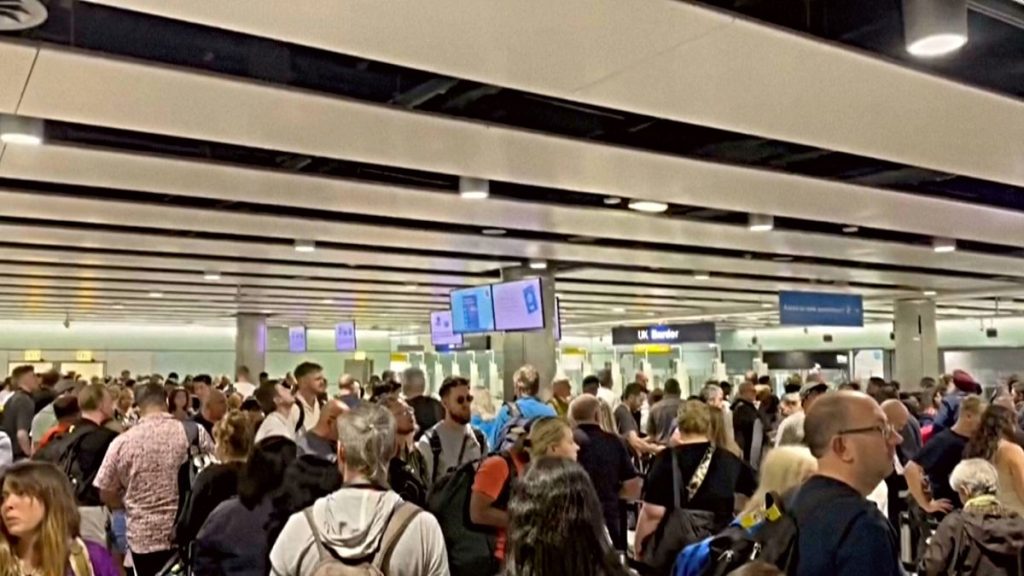The e-gates system at several of the UK’s busiest airports experienced a mass outage on Tuesday, causing disruption and long queues for thousands of passengers. The airports affected included Heathrow, Gatwick, Stansted, Edinburgh, Birmingham, Manchester, and Bristol. The British Home Office ruled out a cyberattack as the cause of the outage, attributing it to a nationwide technical issue. Border Force workers had to process passengers manually, leading to significant delays.
This incident is not the first time that the automated e-gates have malfunctioned in UK airports. Previous IT issues in May 2023 and August of the same year resulted in flight cancellations and stranded passengers. The upcoming implementation of the EU’s new Entry/Exit System (EES) in October, requiring fingerprints and facial scans from UK travellers to EU countries, raises concerns about potential future disruptions. A report found that many UK adults are unaware of the EES scheme and are hesitant to travel to Europe due to the new system’s requirements.
The UK government’s delay in introducing an app to help streamline queues at airports and seaports further adds to the uncertainty surrounding the effectiveness of the e-gates system. The unreliability of the current e-gates has raised questions about the Border Force’s plans to create an “intelligent border” with advanced facial recognition technology. Trials for new e-gates capable of allowing arrivals into the UK using only facial recognition are set to be held later this year. However, the recent e-gate failures have cast doubt on the success of such initiatives amidst ongoing technical issues.
Border Force officials have expressed their commitment to bringing Britain’s border security up to a world-class standard through the implementation of advanced technology. Despite assurances that border security was not compromised during the e-gates outage, concerns remain about the system’s reliability and potential impact on border operations. The cooperation of airlines and other partners was crucial in managing the disruption caused by the technical issue, highlighting the need for effective contingency plans in case of future outages.
In conclusion, the recent e-gates outage at UK airports has once again highlighted the vulnerabilities of the system and raised questions about the readiness of border security measures for future challenges. The upcoming implementation of the EU’s EES, delays in introducing queue management apps, and ongoing technical issues with the e-gates system have added to the uncertainty surrounding border operations. The need for robust contingency plans and effective communication between stakeholders remains paramount to ensure a smooth travel experience for passengers and maintain border security standards in the face of potential disruptions.


